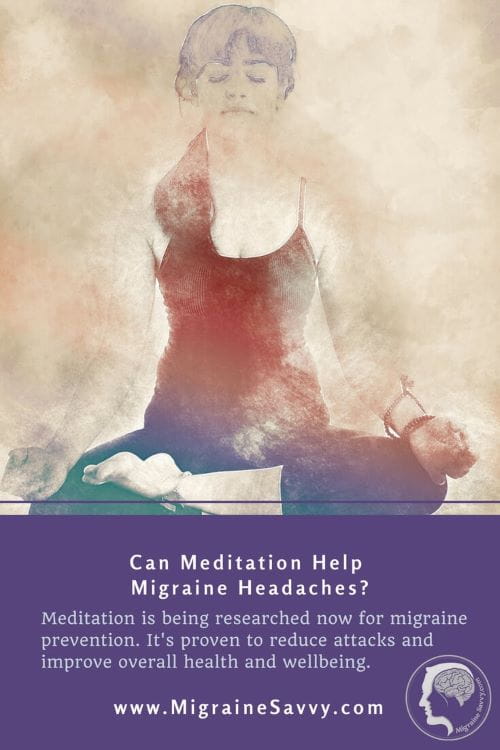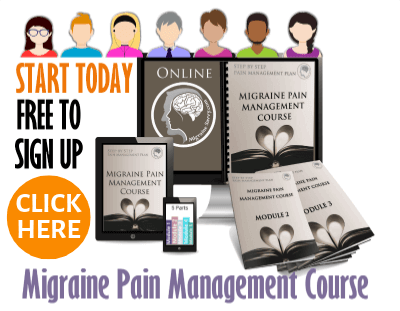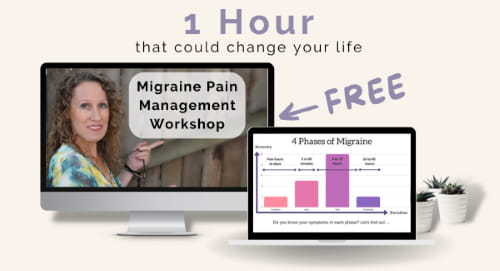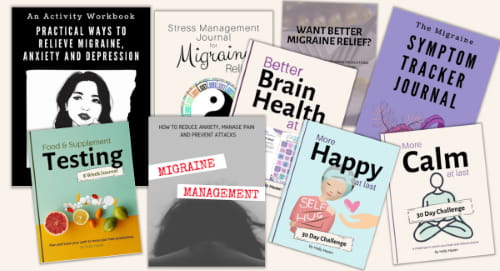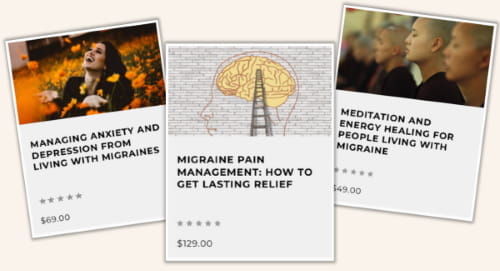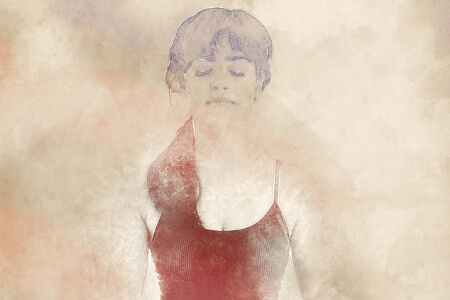- Home
- Meditation
- Meditation Books for Migraine Relief
Magnesium Deficient = More Migraine Attacks
Science confirms this hidden trigger.
Get all 7 forms your body actually absorbs in one bottle.
🎁Save 10% with my code!
Magnesium Deficient = More Migraine Attacks
Science confirms this hidden trigger. Get all 7 forms your body actually absorbs in one bottle +
🎁Save 10% with my code!
Meditation Books for Migraine Relief: The Best One
There are millions of meditation books to read but few meditation books for migraine specifically. Meditation has been thoroughly researched and has been proven to help reduce migraine attacks. Especially if they are stress related. And with all the new information on the neuroplasticity of the brain, we now know that stress negatively effects every system in our body.
So let me save you some time and introduce you to the one you absolutely must read to form a good understanding of the whole meditation process and why it works. This was the first one, and everyone else has just followed his lead. So, let's learn from the pioneer.
Herbert Benson’s "The Relaxation Response" is one of my favorite meditation books for migraine relief.
He provides a scientific background that we can connect with our migraine attacks. This helped me understand the benefits of the process better
and how it relates to my body and my migraines by reducing the automatic
stress responses that naturally occur in our bodies.
If you can't think straight with a migraine, you might prefer the meditation technique to be easy or for someone else's voice to guide you away from the pain. So feel free to record my versions for yourself.
But first, let's start with the famous Dr. Benson.
The Famous Relaxation Response
Dr. Benson has a number of meditation books, including Beyond the Relaxation Response but his first book called The Relaxation Response is famous for teaching us laymen an easy way to "elicit the relaxation response."
The intention of this meditation technique is to rest our minds and bodies which simultaneously calms down our nervous system that also reduces stressors. His book is so informative, it’s almost like free lessons on meditation.
Over sixty percent of people presenting to doctors these days are due to stress symptoms that are currently poorly treated by drugs and surgery today.
Benson says that over the last 200 years we have separated the mind from the body – due to Descartes’ political decision. Then it was reinforced by scientific discoveries.
Watch any talk on YouTube with Dr. Benson and he will provide some great details of the progress of scientific discoveries: the cure for scurvy, insulin, penicillin, antibiotics, the cure for tuberculosis, all of which kept the body separate to the mind in the eyes of science.
While at Harvard medical school he discovered the fight and flight system in the body.
Now thousands of papers are proving that
meditation can solve problems around stress related problems like:
tension headaches, pain, high blood pressure, etc. But the separation
of body and mind has continued.
The Brain Knows Your Healthy State
Dr. Benson has devoted over forty years to experimenting with meditation and its effects on our body. There is now proof that the brain itself, changes from the regular practice of meditation.
Studies over an average nine year period have also been done on: yoga, prayer and Tai chi with similar positive results.
When I was studying Shiatsu massage, before my Chinese Medicine stint, the teacher always said "our bodies will always try to maintain homeostasis." So I used to say after each massage, "and we come back to balance."
Reading Dr. Benson’s book confirms the fact that our brain does in fact know what our healthy state is. Our brains are hardwired to recall perfect health in its memory center.
If you can... remember back to a time of happy, healthy you. This can be hard sometimes when you are in the throes of an attack… he says to use this positive vision of yourself to meditate with.
It’s no guarantee that you can make your migraines go away, but it
can’t hurt to visualize your wellness and being pain free before
migraines came into your life.
Meditation Books for Migraine Relief
Imagine your life without migraines.
Even if you can't remember being without migraines - what you can do, he says, is to evoke your imagination and use the relaxation response.
The mind will shift into the quiet mode and you can visualize the wellness you had.
You can remember wellness in those you love and you can see them happy, laughing and being pain free.
Here are just a few other points that he makes:
- When your mind is quieter, with less noise, it is more receptive to new facts coming in.
- We have both the capacity to be stressed out and the opposite solution.
- Use medication and surgery where they fit, where they should be used, but used in conjunction with meditation you will experience better health and well-being.
- In his latest protocol he uses CBT to break the train of usual thought. Using CBT will reprogram the mind and give it new thoughts.
- Find the technique you like best: yoga, tai chi, running. Sitting still may not do it for you. "There is smorgasbord of choice."
- Useful combinations like acupuncture and meditation have been found to be effective to reduce pain.
Please
click here
for The Relaxation Response and more instructions on his method.
WANT MORE TIPS? Subscribe to my newsletter and follow along on Facebook and Pinterest for all of the latest updates.
How to be more MIGRAINE SAVVY right now...
MIGRAINE MEDITATIONS Related Articles
Comments On Meditation Books for Migraine
The Migraine Solution Book by Paul Rizzoli, MD., Elizabeth Loder, MD. and Liz Neporent from Carol (Western Australia)
I find the meditation in the book really good for a quick one minute relaxation (page 178). This is a direct quote from the book: "When you've got one minute to relax: place your hand just beneath your navel so you can feel the gentle rise and fall of your belly as you breathe. Breathe in slowly. Pause for a count of three. Breathe Out. Pause for a count of three. Continue to breathe deeply for one minute, pausing for a count of three after each inhalation and exhalation. Or alternatively, while sitting comfortably, take a few slow deep breaths and quietly repeat to yourself "I am" as you breathe in and "at peace" as you breathe out. Repeat slowly two or three times. Then feel your entire body relax into the support of the chair." I use this for longer than one minute when I feel a migraine coming, sometimes I sit for 20 minutes just to calm down. But it always helps. I think this is a great book for us migraineurs.
THE BEST Migraine Meditation Book by Cynthia Perkins from Sarah (Salt Lake City, Utah)
I have had chronic migraines almost daily for 2 years now. I use Imigran, but was looking for pain relief without using so many drugs. I just wanted to say thank you for telling me about Mindfulness Over Migraines. I have read it a few times now and have had good results from doing the meditation at the right time. I have been able to reduce the attacks to one a week. Still a long way to go, but very happy with it all. Thank you Migraine Savvy and thank you Cynthia Perkins.
Meditation Books for Migraine Reference: Dr. Herbert Benson (1975) The Relaxation Response. HarperCollins Publishers: NY.
